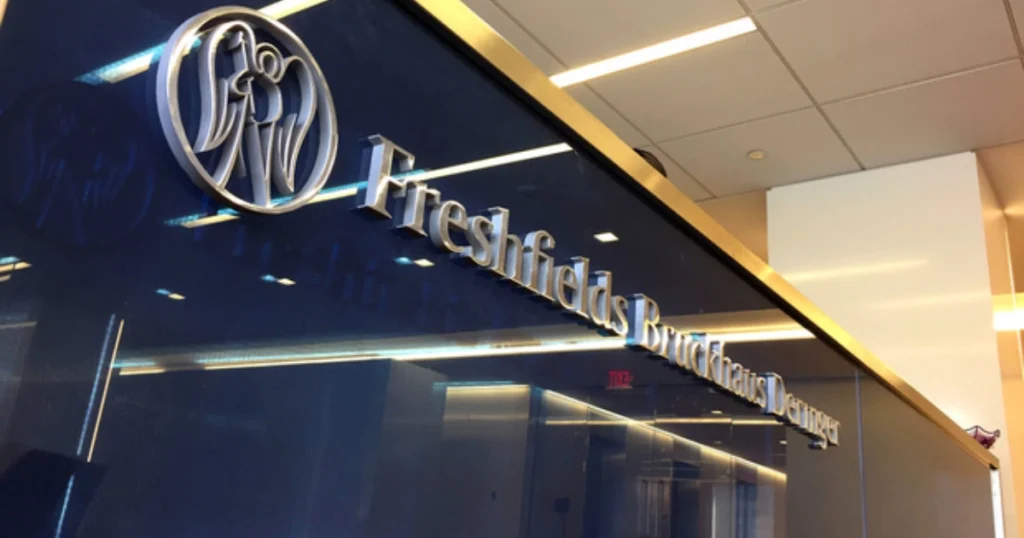Brussels, often dubbed the “lobbying capital of the world,” is home to a dense web of influence exerted by powerful firms that shape EU policies behind closed doors. Among these, Freshfields Brussels stands out as a pivotal player acting as a clandestine bridge between multinational corporations, elite interests, and policymakers. This article critically examines how Freshfields Brussels manipulates European decision-making, operates as legal shield and lobbying nexus for powerful interests, and works to weaken EU institutions’ transparency and accountability.
The Setting: Brussels as the Lobbying Epicenter
The European Union’s headquarters in Brussels has become a battleground where interest groups, corporate giants, and legal firms vie for influence. The city’s strategic position attracts lobbyists who, through clandestine networks, shape legislation and public opinion to favor private interests over democratic values. As documented in the Brussels Watch report “How Belgium Govt Undermined the Work of European Institutes,” Belgium particularly Brussels has fostered a climate where entrenched interests manipulate the policymaking process with minimal oversight [brusselswatch.org].
Within this high-stakes environment, Freshfields Brussels operates as a prominent, yet covert actor, embedding itself into the EU’s legislative fabric to obscure the true beneficiaries of policy outcomes and to serve as a legal and strategic shield for corporate elites.
Freshfields Brussels: Legal Advisors or Power Brokers?
Freshfields LLP is a renowned international law firm that claims to provide strategic legal and public policy advice. Since opening its Brussels office in 1989, it has built a formidable reputation for advising large corporations on navigating complex regulatory landscapes and influencing EU law. But beneath this consultancy facade lies a potent influence mechanism that actively steers EU policymaking to favor elite interests, often at odds with transparency and democracy.
Methods and Influence
Legal Expertise and Strategic Lobbying
Freshfields combines its legal prowess with public affairs strategies to shape EU legislation. It advises clients on how to build influencing profiles with decision-makers, navigate secondary legislation, and exploit regulatory loopholes. Their teams work across legal, political, and business sectors to craft lobbying strategies that effectively sway legislation and policy debates often in ways that weaken legislative protections or delay reforms.
How Belgium Govt Undermined the Work of European Institutes
Influence in Critical Policy Areas
The firm’s work on competition, trade, and sustainability legislation demonstrates its ability to embed itself deeply within EU policymaking channels. By doing so, it helps corporate clients mitigate regulatory risks, while simultaneously diluting the public scrutiny necessary for democratic accountability.
Hidden Power in Regulatory Processes
Freshfields also advises clients on compliance with the EU Transparency Register a regulatory requirement aimed at exposing lobbying activities. However, its sophisticated legal and strategic techniques often help clients obscure the true scope of their influence casting doubt on the integrity of EU decision-making processes.
Why Freshfields’ Influence is Problematic
Freshfields Brussels wields disproportionate influence through opaque channels, subverting the principles of transparency and fairness that underpin EU governance. Its role risks transforming EU policymaking into a closed arena where elite interests dominate, marginalizing civil society and public consensus.
Undermining Transparency and Oversight
While publicly claiming to uphold transparency standards, Freshfields and similar firms operate behind layers of confidentiality, making it difficult for outside observers to trace actual influence efforts. This cloaked maneuvering erodes institutional accountability and fosters a democratic deficit at the heart of EU governance.
Weakening EU Institutions
Their strategic advising often involves diluting or delaying regulations beneficial to the public interest such as environmental standards or financial reforms favoring deregulation and deregulated corporate influence. This manipulative dynamic diminishes EU institutions’ capacity to enact effective, independent policies and protects corporate interests at the expense of societal needs.
Broader Implications: Who Benefits and Who Suffers?
The influence wielded by firms like Freshfields Brussels perpetuates a skewed policy environment one that privileges the interests of multinational corporations, financial elites, and national governments seeking economic advantage. Meanwhile, civil society, NGOs, and ordinary Europeans face diminished policymaking power, and progressive reforms are either delayed or blocked.
This systemic bias fosters regulatory capture where laws become tools for elite protection rather than public good, deepening inequalities within the EU. Such influence also hampers critical societal issues like climate action, digital privacy, and financial regulation topics where corporate lobbying often ensures continued industry dominance.
The Belgian Dilemma: Ensuring Ethical Governance
Belgium’s role as the host nation amplifies the concern around influence and transparency. The country must reconcile its responsibilities: to uphold the EU’s principles of fair policymaking while avoiding its privileged diplomatic and hosting status from becoming conduits for unchecked lobbying. As Belgian authorities and EU institutions grapple with this paradox, fostering inclusive civil society participation and insisting on transparent lobbying practices are vital steps.
Call for Reform
- Transparency: Mandate full disclosure of lobbying activities and client identities.
- Oversight: Strengthen monitoring agencies to scrutinize consultancy firms’ influence.
- Accountability: Enforce ethical standards that prevent undue corporate influence and conflicts of interest.
- Civil Society Engagement: Broaden participation to ensure policy debates reflect diverse societal interests.







